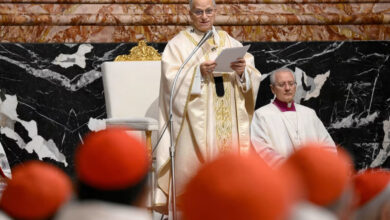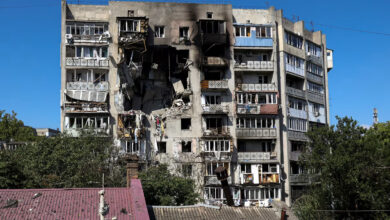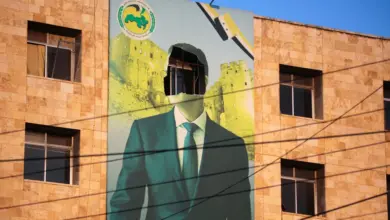As the controversy surrounding the Cordoba House in Lower Manhattan has grown to a frenzy, we keep hearing the claim that opponents of the project are not driven by Islamophobia. Instead, we are told, they are motivated by "sensitivity" to those who died on September 11, 2001.
This Saturday, these opponents will descend upon New York for a massive rally against what they insist upon calling “the Ground Zero mosque.” The rally is organized by Pamela Geller and Robert Spencer, right-wing bloggers who are purveyors of shockingly racist and ignorant stereotypes regarding Islam and Muslims.
Invited speakers include such proponents of “sensitivity” as Geert Wilders, the far-right Dutch parliamentarian who favors banning the Qur’an and the building of mosques and has called Islam “the ideology of a retarded culture,” and Brigette Gabriel, who has stated that an American Muslim “cannot be a loyal citizen,” that “every practicing Muslim is a radical Muslim,” and that Americans must view Islam as “the real enemy.”
To say that the memory of September 11 is being exploited by these voices of bigotry is an understatement. The “sensitivity” argument has always been Islamophobic in its essence, since it depends on the suggestion that the presence of anything having to do with Islam near Ground Zero is somehow an affront to those who died there, including those victims who were themselves Muslims.
But the level of venom in the rhetoric of anti-Islamic extremists rises with each passing day. To continue to speak of “sensitivity” in such a context is blatantly insulting.
If there has been anything at all positive in this dark and frightening time, it is the fact that the very visibility of the controversy over Cordoba House, and the increasingly obvious level of bigotry among the project’s opponents, has forced people in the United States to face the question asked recently by Time magazine: Is America Islamophobic?
In New York, this September 11 will, sadly, be marked by an outpouring of hatred from those opposed to Cordoba House. Hopefully, it will also be marked by the voices of those of us who support Cordoba House and oppose this rising tide of Islamophobia.
But this anniversary should not pass without a deeper reflection upon the problems that have at last come to the surface, and a realization that a full reckoning with Islamophobia in the US is long overdue.
September 11, 2001 marked the beginning of a wave of Islamophobia that has affected the lives of Muslims throughout the United States. Of course anti-Islamic bigotry existed before this, but the aftermath of the attacks brought a massive rise in hate crimes against Muslims, as well as a whole series of policies that led to the targeting of innocent members of Muslim communities by federal, state and local law enforcement.
It also marked the beginning of a period of international aggression by the US government that has not ended, and that has caused untold suffering throughout the world. What is generally referred to as “the Muslim world” has been the primary target of this aggression, borne largely by those living in Iraq and Afghanistan, in Palestine, in Iran and Pakistan and Yemen, and directly or indirectly by millions of others throughout the region.
The relationship between September 11, Islamophobia, and wars of aggression is deep, complex and deadly. Opponents of the Cordoba House are simply building upon the legacy of those who have been exploiting September 11 for purposes of repression, destruction and death over the past decade.
I can still remember, vividly, the emotions I felt on that first September 11. In the years since, watching the way that "9/11" has been so thoroughly exploited, commodified and harnessed for all sorts of nefarious purposes, I have sometimes despaired of the idea that anything positive could still be taken from the memory of that day.
But in light of the controversies burning in Lower Manhattan this September 11, I find myself thinking back to one particular hope that I felt in those first days. Perhaps, I thought, people in the U.S. might finally be moved (even if only out of a sense of self-interest) to begin to think about themselves as part of the larger world.
This has not yet begun to happen. But this anniversary marks a good time to begin this work. If Americans are really going to face the question of whether we are an Islamophobic nation, then this needs to be addressed not only as a national question, but as an international one. American Islamophobia affects Muslims living in the United States, but it also affects millions of people throughout the world.
A true reflection on these issues, in all their complexity and–dare I say it–their sensitivity, would be the most meaningful way to honor this anniversary.
Anthony Alessandrini teaches English at Kingsborough Community College-City University of New York in Brooklyn, and is a member of the New York City Coalition to Stop Islamophobia.




